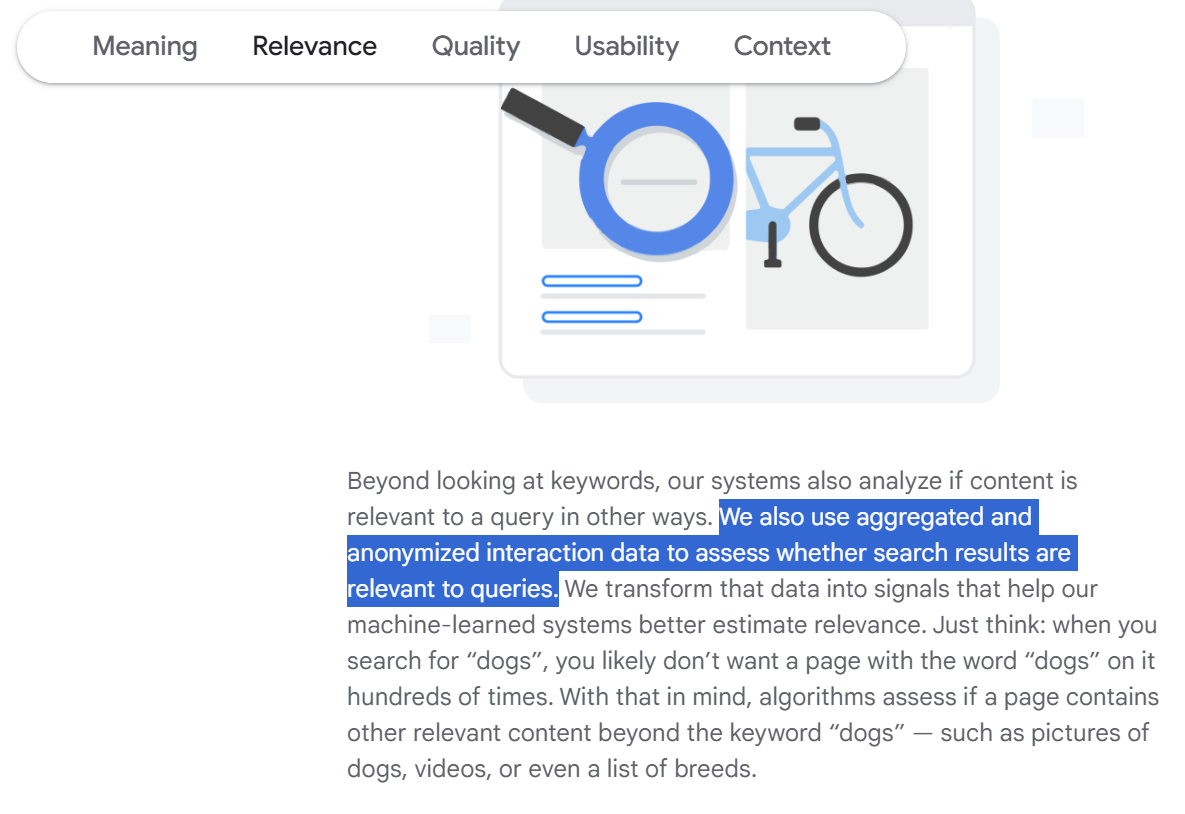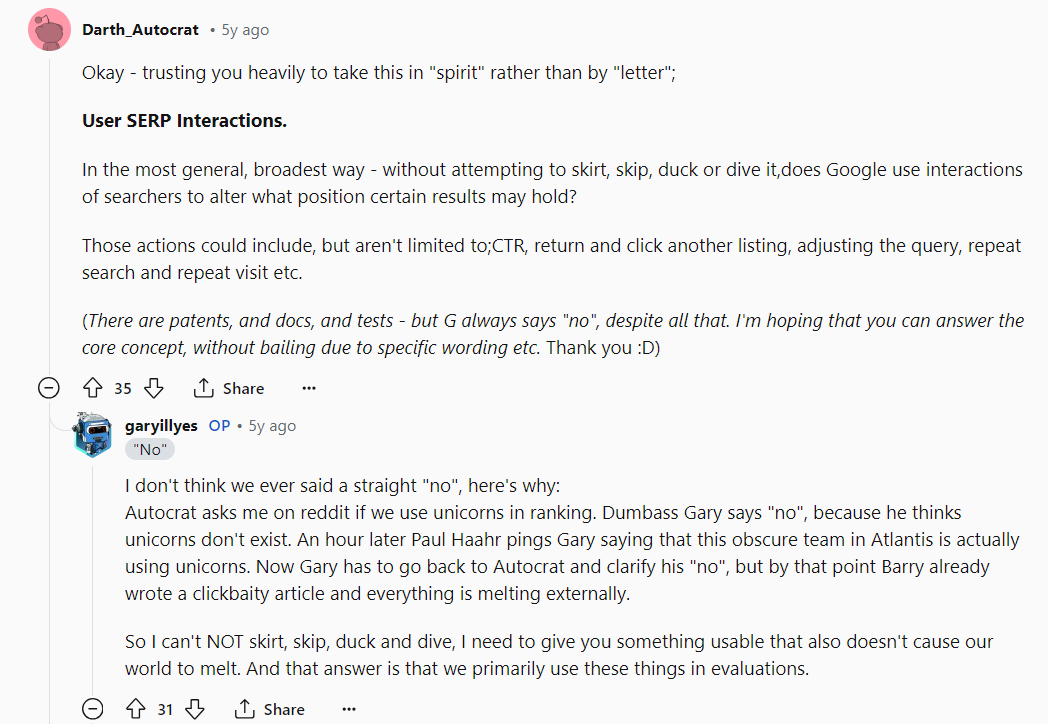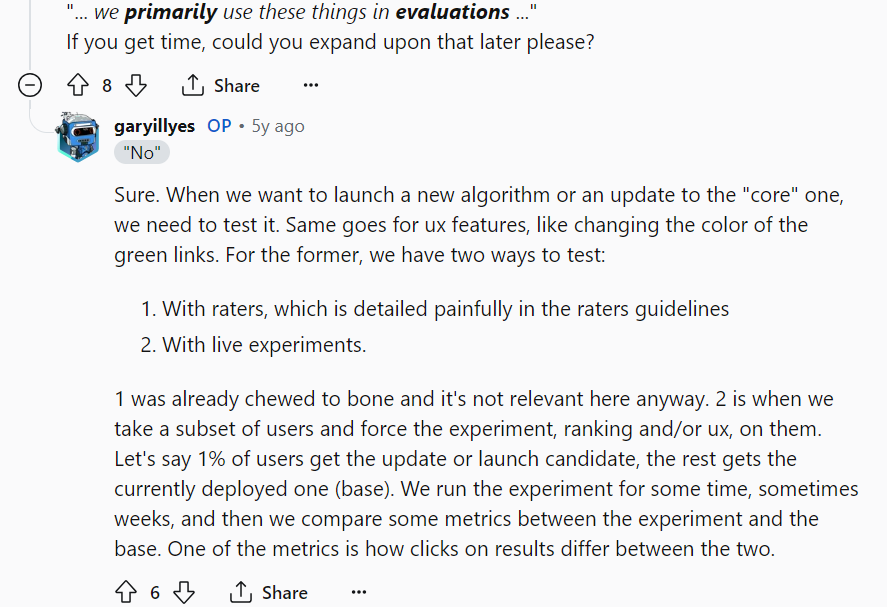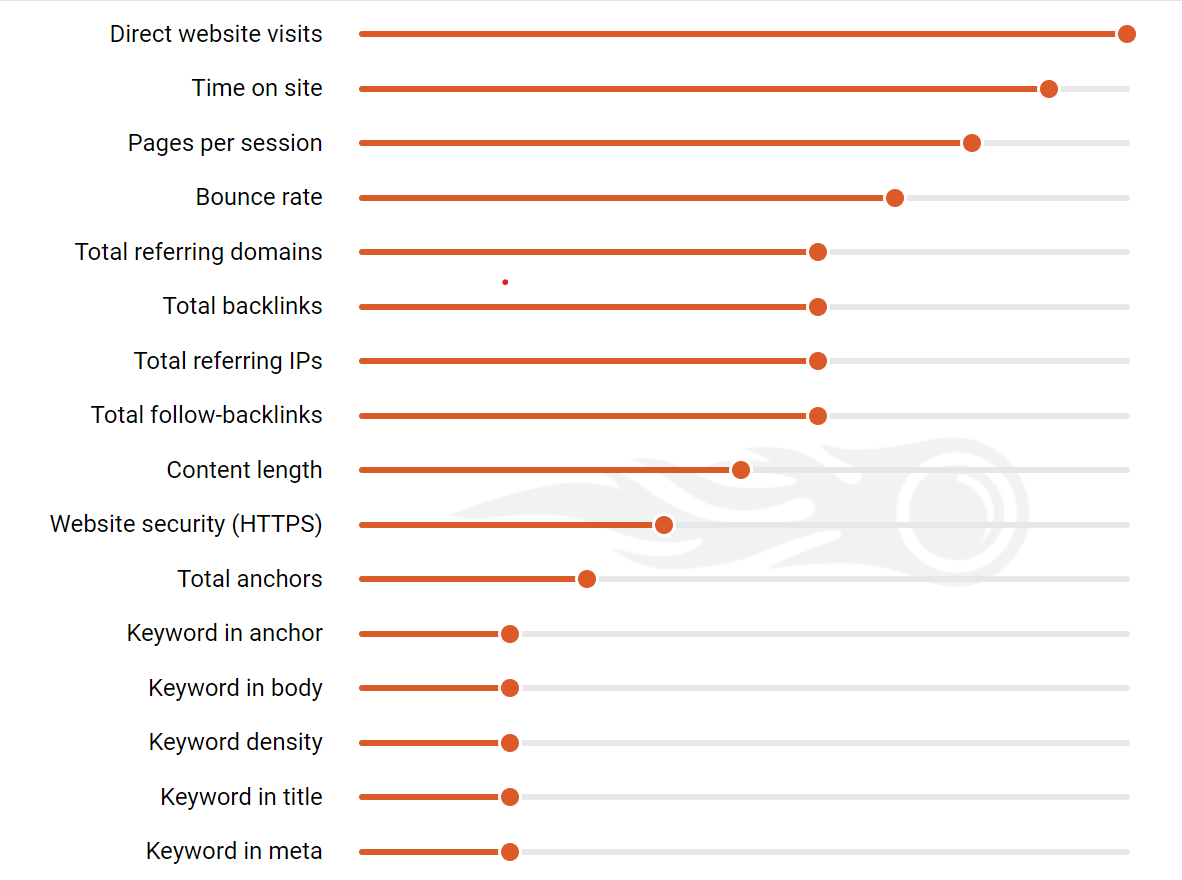The main purpose of Google Search is to provide most relevant results to a user query. “Relevance”, and consequently SERP ranking, in this case is determined by many factors that Google is not eager to share to the public.
It can be understood: the more you know about such factors, the easier it is to change them to your liking and rank higher without the help of Google’s Paid search ads.
That is why there are no “100% verified” ranking factors, apart from purely technical ones (such as page loading speed).
However, Google still has guidelines that indicate what helps websites rank higher. User Behavior is an important part of those guides. It’s also quite obvious, as there are few reliable ways to estimate content quality apart from User Behaviour.
So, what metrics comprise User Behavior? That’s where things are getting interesting. The wording in Google guidelines only has vague definitions such as “interaction data”.
It can be understood: the more you know about such factors, the easier it is to change them to your liking and rank higher without the help of Google’s Paid search ads.
That is why there are no “100% verified” ranking factors, apart from purely technical ones (such as page loading speed).
However, Google still has guidelines that indicate what helps websites rank higher. User Behavior is an important part of those guides. It’s also quite obvious, as there are few reliable ways to estimate content quality apart from User Behaviour.
So, what metrics comprise User Behavior? That’s where things are getting interesting. The wording in Google guidelines only has vague definitions such as “interaction data”.

Studies from Backlinko and SEO expert Neil Patel, as well as the famous Rand Fishkin’s experiment, suggest that mentioned metrics are click-through rate (CTR), time on page, bounce rate, scroll depth, etc. We look into these metrics more closely in this article. They are considered main Behavior factors.
However, Google staff and a number of marketers deny that any of the mentioned factors have direct influence on ranking. Gary Ilyes, Google’s analyst, once called CTR and other metrics “made up crap”.
However, Google staff and a number of marketers deny that any of the mentioned factors have direct influence on ranking. Gary Ilyes, Google’s analyst, once called CTR and other metrics “made up crap”.

This triggered the discussion where the audience gave some arguments to back up the existence of mentioned metrics, such as screenshots from Google developer guides, indication of patents that Google registered, and more. Here’s the link to the whole conversation, that ended in the following words:

“Usage in evaluations” is then elaborated on:

This dialogue pushes Ilyes to acknowledge some use of these click-related metrics in controlled situations, and it is the greatest extent of Google-related stance on this issue we were able to find. Obviously, there is controversy about it in Google itself, and Ilyes may well be expressing his sincere opinion when calling Behaviorals “crap”, but his colleagues might have different thoughts. Like, really different thoughts.
Here’s the last study we want to share, by Semrush. They analyzed 600,000+ of keywords to determine what factors really influence rankings. Here’s what they got in the latest version:
Here’s the last study we want to share, by Semrush. They analyzed 600,000+ of keywords to determine what factors really influence rankings. Here’s what they got in the latest version:

As this study and other arguments in this article show, Behavioral metrics not only influence SERP ranking, but they are among the most important factors to consider. Luckily, CTR.pro allows you to flexibly influence the top-4 factors, as well as many others, to help your website climb the rankings.
